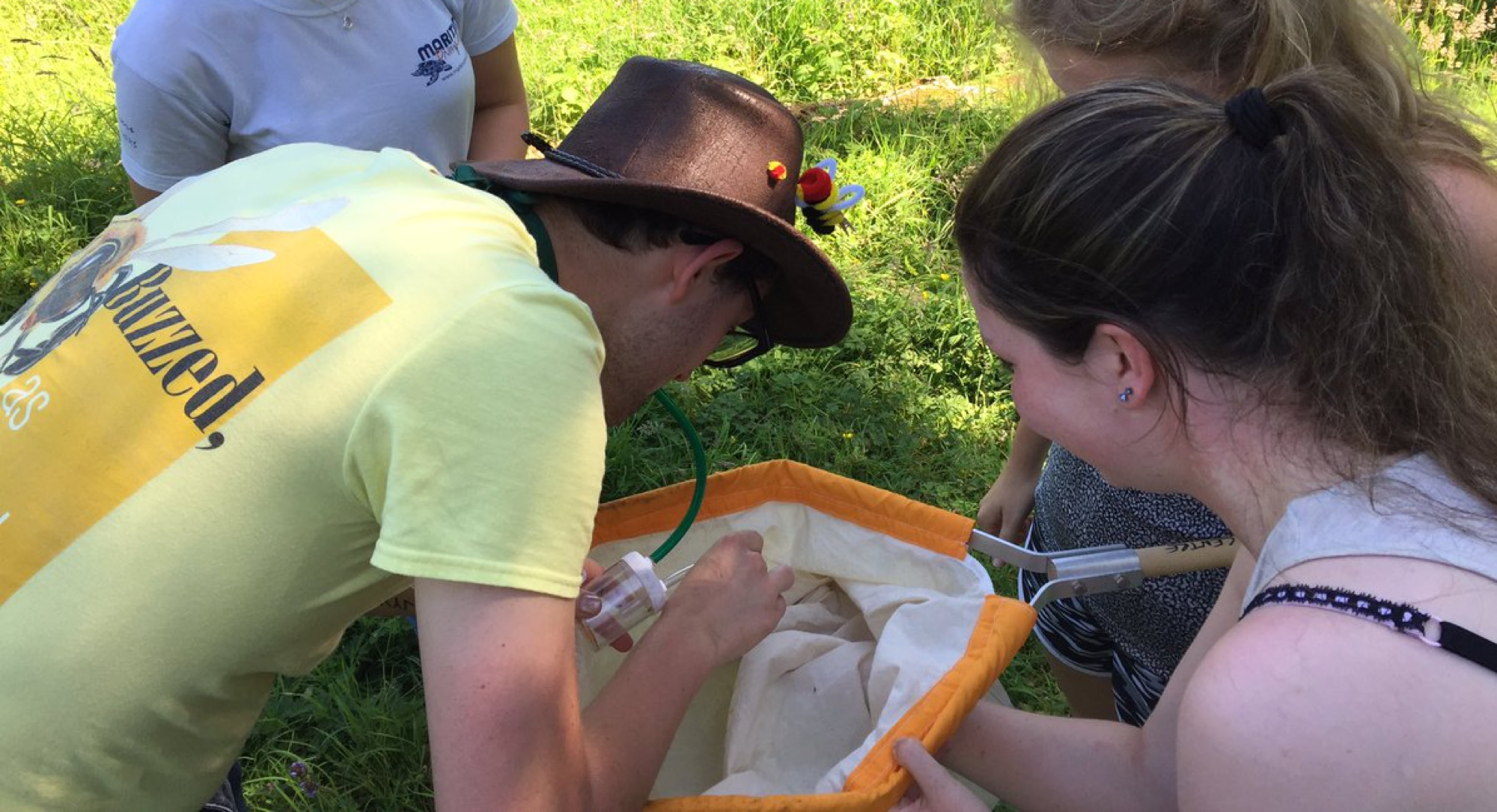Teaching & Mentoring
I’ve been teaching in universities since 2013, received my first professional teaching body accreditation (AFHEA) in 2016, and have since consolidated my commitment to engaging with good pedagogy, innovative and varied teaching paradigms, and continual personal development as a teacher and educator.
I am a current and founding committee member of the British Ecological Society’s Learning & Teaching Special Interest Group, with many of my recent activities acting through this collective.
For a full list of my teaching experience, please see my C.V. page, accessed here.
Below, I’ve detailed a couple of example highlights in my teaching & mentoring mission and experience.
Please also see my Beekeeping Education page for information on my teaching in the agricultural extension sphere.
Leading a workshop on ‘Building your teaching portfolio as an E.C.R.’ with the BES Learning & Teaching SIG - Ecology Across Borders, Ghent 2017
Field & Empirical Teaching
Field sampling of pollineighbours at BES Summer School - Malham Tarn, Yorkshire 2016
Expanding opportunity for meaningful engagement with field and empirical ecology is critical for the future and diversity of biological sciences, especially in making such research accessible to disabled students and minority researchers for whom field work and international travel may be unsafe.
I am particularly proud in this regard of my role as a mentor and lead mentor for the first BES Undergraduate and A-Level Summer Schools, few things fill me with more joy than how well all my former mentees are doing when we get to cross paths or check in.
Beyond this, much of my current entomological focus capitalises on its ease and accessibility for meaningful undergraduate research experiences, which I am always happy to be contacted about.
Quantitative & Theory Teaching
Quantitative work is rich and varied in ecological and evolutionary biology, its training makes for extremely employable skills for students to gain, and can broaden participation where it intersects with public health and infectious disease fields, which have been more successful than EEB in their racial diversity.
Many students fall foul of believing themselves poor at quantitative ecology, often from my experience as a result of the commodification of undergraduate degrees and poor quantitative pedagogy. I have been teaching quantitative methods for biological and environment scientists since 2013, and am absolutely committed to re-imagining how we approach this problem area.
At University of Exeter, I was nominated for teaching awards and departmental prizes for my quantitative teaching approaches; at U.C. Berkeley I presented on Pedagogy & Quantitative Teaching for Biologists at ESA 2017 in Portland, showcasing some of the example teaching techniques I’ve explored for making quantitative teaching more effective and widely accessible.
An early seminar on applying quantitative ecology in beekeeping, Young Harris Beekeeping Institute 2017. Speaking with Mastercraft beekeeper Cindy Hodges, who published her research here shortly after this.
Mentorship and Advocacy
Polly Nation bringing honour (or shame, your choice) to the field of ecology by returning to the BES Science Slam in Birmingham 2019 for another round of drag-comedy science communcation.
Advocacy has been a long professional habit of mine, inspired by my working class northern parents’ attention to their workers union, and has been a keen topic for me in how it particularly matters for groups unduly excluded from professional ecology and evolutionary biology.
As part of my representation and advocacy work, I have been an active member of the British Ecological Society’s Early Careers Working Group since 2015, and was invited to serve on their Education and Careers Committee in 2018, particularly following my leadership described above as part of their summer schools. Through these positions I work to reshape how we understand ecology as a profession to be more inclusive, effective, and free of archaic classist and colonial influence.
Following my professional engagements with the BES, I am one of the founding mentors for the BES LGBTQ+ Peer Mentoring network, to address the gaps in professional and personal guidance experiences by queer ecologists, especially early in their careers.
Further, since transplanting from the UK to the USA, I have moved to more meaningfully advocate for international scientists both here in the US and back in the UK. I served as a mentor for U.C. Berkeley’s international undergraduate biosciences exchange program from 2016-2018, and am currently working collaboratively with the BES T+L SIG to develop resources on guiding academic ecologists who move internationally for their work.



